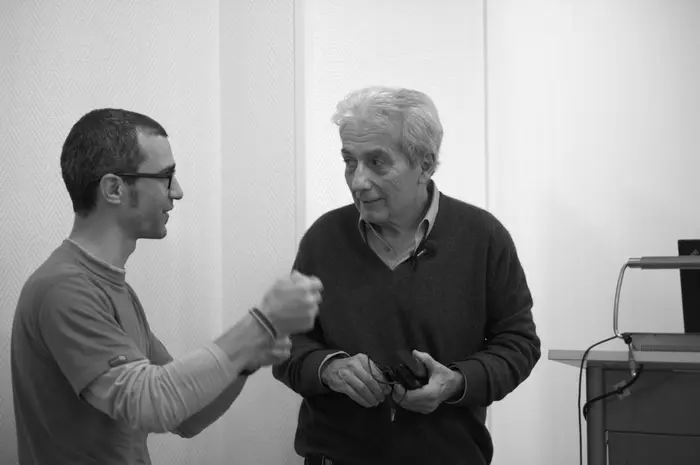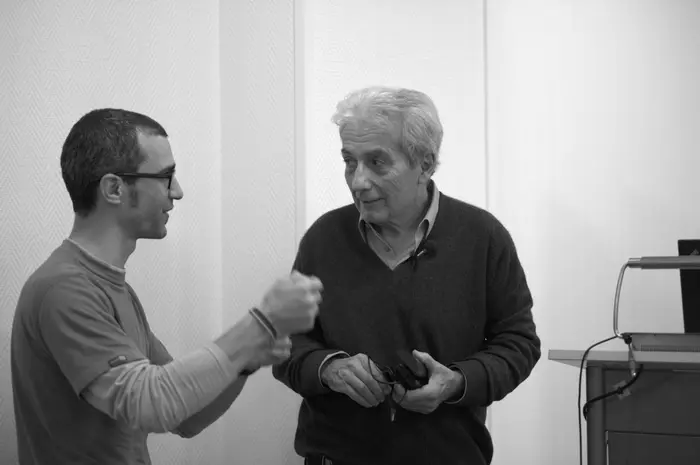In a recent review article published in Reviews of Modern Physics, Fèlix Casanova from the Nanodevices group at CIC nanoGUNE, Prof. Albert Fert, Nobel Prize in Physics, and his colleagues review the state of the art of electrical control of magnetism and give scientific and technological future persperctives.

Credit: CIC nanoGUNE
In a recent review article published in Reviews of Modern Physics, Fèlix Casanova from the Nanodevices group at CIC nanoGUNE, Prof. Albert Fert, Nobel Prize in Physics, and his colleagues review the state of the art of electrical control of magnetism and give scientific and technological future persperctives.
Albert Fert, French physicist and winner of the Nobel Prize in Physics in 2007, is one of the discoverers of giant magnetoresistance, a physical effect that revolutionised hard disk technology, allowing a huge increase in its capacity. His research enabled the capacity and applications of the hard disk drive to be increased, and he is now working towards a new generation of microprocessors that use much less energy. That is one of the challenges modern electronics is facing today. For that purpose, it is necessary to come up with new types of devices and CIC nanoGUNE and his Laboratory have been involved in a collaboration with Intel on such projects. He collaborates at experimental level with the nanodevices group at CIC nanoGUNE to advance and find new properties of quantum matter.
In this review, recent advances in the electrical control of magnetism (either by electric fields and by current-induced torques) are covered. Fundamental concepts in these two directions are reviewed first, their combination is then discussed, and finally a number of families of devices harnessing the electrical control of magnetic properties for various application fields are addressed. The review concludes by giving perspectives in terms of both emerging concepts in fundamental physics and new directions in materials science.
The story of the electrical switching of magnetization, which is discussed in this review, is that of a dance between fundamental research (in spintronics, condensed matter physics, and materials science) and technology (MRAMs, MESO transistors, microwave emitters, spin diodes, skyrmion-based devices, components for neuromorphics, etc.). This pas de deux has led to major scientific and technological breakthroughs in recent decades (such as the conceptualization of pure spin currents, the observation of magnetic skyrmions, and the discovery of spin-charge interconversion effects).
Electrical control of magnetism by electric field and current-induced torques
Albert Fert, Ramamoorthy Ramesh, Vincent Garcia, Fèlix Casanova, and Manuel Bibes
Rev. Mod. Phys. 96, 015005 (2024)
DOI: https://doi.org/10.1103/RevModPhys.96.015005
Journal
Reviews of Modern Physics
DOI
10.1103/RevModPhys.96.015005





